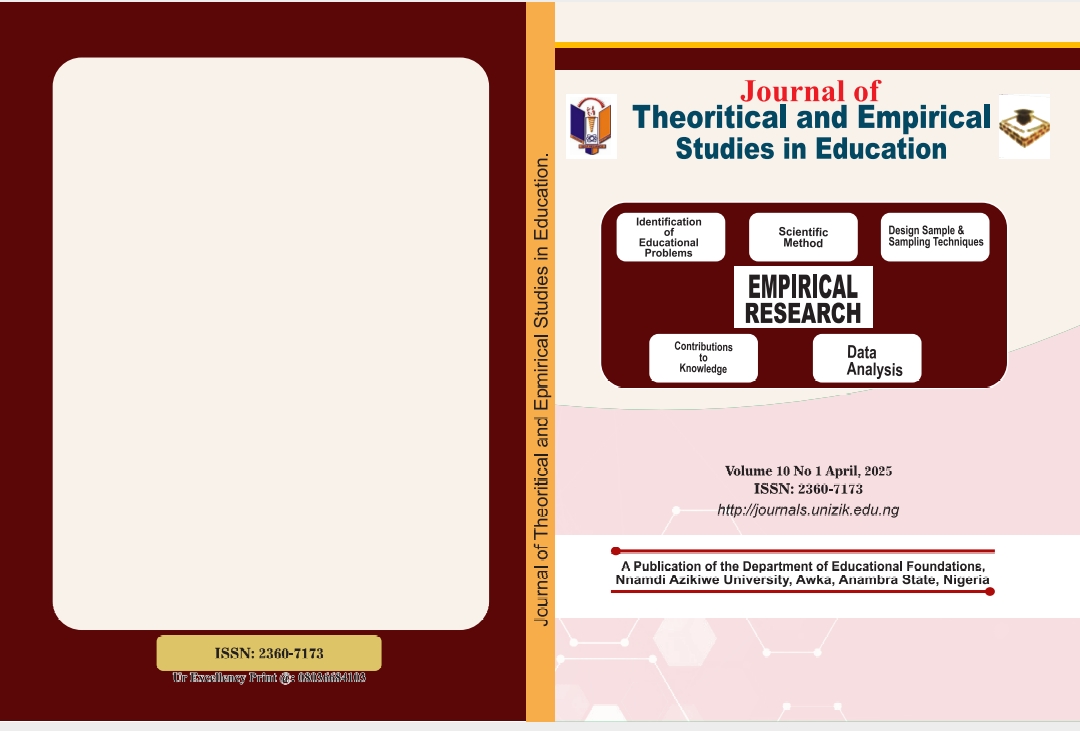Perceived Impact of Artificial Intelligence as a Science Education Tool for Enhancing a Change in Academic Experience
Keywords:
Artificial Intelligence, Academic Experience, and Science EducationAbstract
The study investigated the perceived impact of artificial intelligence as a science education tool for enhancing academic experience. A descriptive design was used to gather data. One hundred and forty-seven (147) respondents, comprising twenty-one students each, which was randomly selected from seven departments in the School of Secondary Education (Science Programmes), Federal College of Education (Special), using proportionate stratified random sampling. Three research questions guided the study. A structured questionnaire, with a reliability coefficient of 0.659, established through a pilot test using the Cronbach Alpha technique, was
the instrument used to draw information from the respondents. Data collected were analysed using descriptive statistics of frequency counts, percentages, and mean, and a mean of 2.50 was taken as the minimum acceptable mean score. The results showed that there is a modest level of AI integration in science education in schools, a favourable perception of this integration, and several obstacles to overcome in its use. It is concluded that although there is no proper integration of artificial intelligence, it is seen as a very effective science education tool for enhancing academic experience, also there is a positive student opinion about the integration of AI in science education. It was recommended that lecturers should encourage their students to use AI, that there be sufficient resources for AI tools, and that educators and institutions incorporate AI technologies into teaching and learning.




